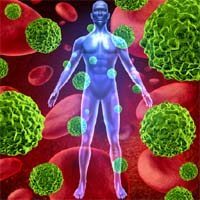The Power of Immunotherapy: T Cells and Mesothelioma Treatment
Mesothelioma patients with more immune cells called CD8+ T cells might respond better to immunotherapy. This is the finding of a team of scientists from Japan. Their study was published in the scientific journal Thoracic Cancer. Typical Treatment Plan Mesothelioma is a type of cancer that is both rare and aggressive. It grows in the cells lining the surface of organs like the lungs. Mesothelioma is caused by exposure to a toxic mineral called asbestos. Because it is rare and grows quickly, mesothelioma can be hard for doctors to diagnose and treat. A patient usually needs to have many tests before a doctor can diagnose them with mesothelioma. This can include imaging scans, blood tests, and biopsies. Once mesothelioma has…






